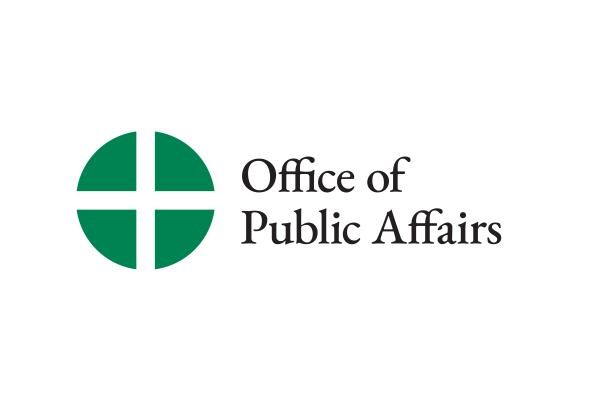Church-State Relations Discussed at Meeting of United States Oriental Orthodox-Roman Catholic Consultation
WASHINGTON (June 24, 2002) -- Church-state relations was the main theme of this year's meeting of the United States Oriental Orthodox-Roman Catholic Consultation. The session took place on June 10 and 11, 2002, at Cardinal Spellman Retreat House in Bronx, New York, under the Co-Chairmanship of Bisho
WASHINGTON (June 24, 2002) -- Church-state relations was the main theme of this year's meeting of the United States Oriental Orthodox-Roman Catholic Consultation. The session took place on June 10 and 11, 2002, at Cardinal Spellman Retreat House in Bronx, New York, under the Co-Chairmanship of Bishop Howard Hubbard of Albany and the Right Rev. Chor-Bishop John Meno of the Syriac Orthodox Church of Antioch.
His Grace Bishop Vicken Aykazian, Diocesan Legate and Ecumenical Officerof the Eastern Diocese of the Armenian Church in America, began the first session with reflections on the visit of His Holiness Pope John Paul II to Armenia in September 2001. This visit, which had to be delayed in view of the deteriorating health of Catholicos Karekin I (whodied in June 1999), marked a new stage in relations between the Catholic and Armenian Apostolic churches. Bishop Vicken then described in some detail the evolution of church-state relations among the Armenians in the Russian and Ottoman Empires, in the short-lived independent Armenian state that existed from 1918 to 1920, and finally in the present day Armenian Republic that became independent in 1991. Negotiations are continuing between the church and state in Armenia in an effort to regularize the relations between the two but several issuessuch as the return of property confiscated by the previous communist government are yet to be resolved.
The second session was devoted to a discussion of major events in the lives of our churches. Bishop Hubbard outlined the crisis currently affecting the Catholic Church in the United States and commented on the draft "Charter for the Protection of Children and Young People" that wasto be discussed at a meeting of the US Catholic Bishops in Dallas, Texas, later in June. Other topics discussed included the pastoral agreement on mixed marriages between the Coptic Orthodox Church and the Greek Orthodox Patriarchate of Alexandria, the situation of the Coptic Orthodox Church in Egypt, the suspension of Archbishop Mor Nicholovos Zachariah and the appointment of Mor Ivanios Mathews as Archbishop of the Malankara Archdiocese of North America of the Syriac Orthodox Church, developments in the Standing Conference of Oriental Orthodox Churches in America, the dialogue between the Catholic Church and the Malankara Orthodox Syrian Church and the Malankara Syrian Orthodox Church in India, and the Fifth Non-Official Pro Oriente Syriac Consultation that was held in Vienna in March 2002.
At the third session, which took place on the morning of Tuesday June 11th, Fr John Long, SJ, reviewed the development of church-state relations in contemporary Catholic theology as expressed in two documents of the Second Vatican Council: Gaudium et Spes (Pastoral Constitution on the Church in the Modern World) and Dignitatis Humanae (Declaration on Religious Freedom). He then showed how the principles developed at the Council found expression in Faithful Citizenship: Civic Responsibility for a New Millennium,a statement on political responsibility by the Administrative Board of the United States Conference of Catholic Bishops issued in 1999 in view of the national elections in 2000.
The 2003 meeting is scheduled to take place on June 9 and 10 at St. Nersess Armenian Seminary in New Rochelle, NY. The theme will be the theology of the diaconate with individual presentations on the way in which this office has developed in the churches, including the possibility or practice of ordaining women deacons. An exemplary training program for the formation of permanent deacons will also be examined.
The United States Oriental Orthodox-Roman Catholic Consultation was established in 1978, and is sponsored jointly by the Bishops' Committee for Ecumenical and Interreligious Affairs of the USCCB and the Standing Conference of Oriental Orthodox Churches in America. Member churches onthe Oriental Orthodox side include the Armenian Apostolic Church, the Coptic Orthodox Church, the Syriac Orthodox Church of Antioch, and the Ethiopian Orthodox Tewahedo Church. In 1995 it published Oriental Orthodox-Roman Catholic Interchurch Marriages and Other Pastoral Relationships,which includes pastoral guidelines for marriages involving the faithfulof the two communions as well as ample documentation about the development of the ecumenical relationship in recent decades. In 1999 it issued "Guidelines Concerning the Pastoral Care of Oriental Orthodox Students in Catholic Schools," the text of which is available on the USCCB web site at https://www.usccb.org/seia/oriental.htm

